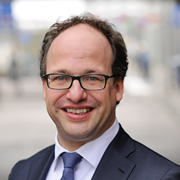Dutch Minister Decouples Talks With Funds About Cuts From Reform Details

Talks with pension funds in the Netherlands about their financial predicament can be regarded as separate from the further development of the new pension accord in the steering committee, according to the country’s social affairs minister Wouter Koolmees.
In a letter to the Dutch parliament this week, the minister said the steering committee – which comprises members of the cabinet, employer organisations, trade unions and advising organisations such as the Dutch central bank – wanted to finalise the details of the pension deal by the end of April next year. The cabinet would then publish a white paper that year, to be able to submit a legislative proposal for a review of the Dutch pension system in early 2021.
This timetable means it is unlikely that the law will be passed before the upcoming parliamentary elections, which are scheduled for 17 May 2021.
The benefit cuts issue is of more immediate concern to the pension funds, however. In his letter the minister wrote that he wanted to discuss the alarming financial situation separately with the sector, as distinct from what is being discussed in the steering committee.
Consultations on these matters are already taking place with pension funds, a spokesperson for Koolmees said. He could not comment on the content of these talks and on possible measures that may mitigate the threat of cuts.
Earlier this week it became apparent that the social affairs department was sticking to 104.3% as pension funds’ minimum required funding level, with funds therefore still underfunded if they achieve a 100% coverage ratio. Dutch pension funds continue to run the risk of having to cut pensions for several consecutive years.
Pension fund affiliation for the self-employed
Research has also started on voluntary pension fund affiiliation for the self-employed. Koolmees said he wanted to include the results of the research in the pension reform green paper.
The same applied to the results of a study by the Netherlands Bureau for Economic Policy Analysis (CPB) on the effects of the new system.
One of the questions being researched is how the intended contract and the improved premium scheme would have performed in the past 40 years with a standard investment mix. The pensions minister is still consulting with the CPB on research into the effect of a long-term low interest rate on a pension system with capital funding.
EU Negotiators Agree On Sustainability Taxonomy, Approval Still Needed
Efama calls for action on corporate reporting given investor disclosure requirements Read more
Large Dutch Metal Schemes Keep Premium, Accrual Unchanged In 2020
PMT and PME announce significant contribution rise for 2021 Read more
AP1 Hit By New Rules Breach As Head Of Equities Agrees To Quit
Swedish national pension fund says Olof Jonasson bought into firms AP1 later invested in Read more
IPE Conference: Pension Funds Find Changing Public Opinion Is Part Of A PE Investors Role
“Locusts” perception of private equity poses challenges for would-be investors Read more
IPE Conference: Long-term Horizon Hailed As Key To Improved Investment Approach
‘The biggest risk is that you will not achieve any returns in the coming decades,’ says Jaap van Dam, 300 Club Read more
UK Roundup: TPR Debt Recovery Rate Low, £40m Missed
KPMG sells UK pensions practice Read more

